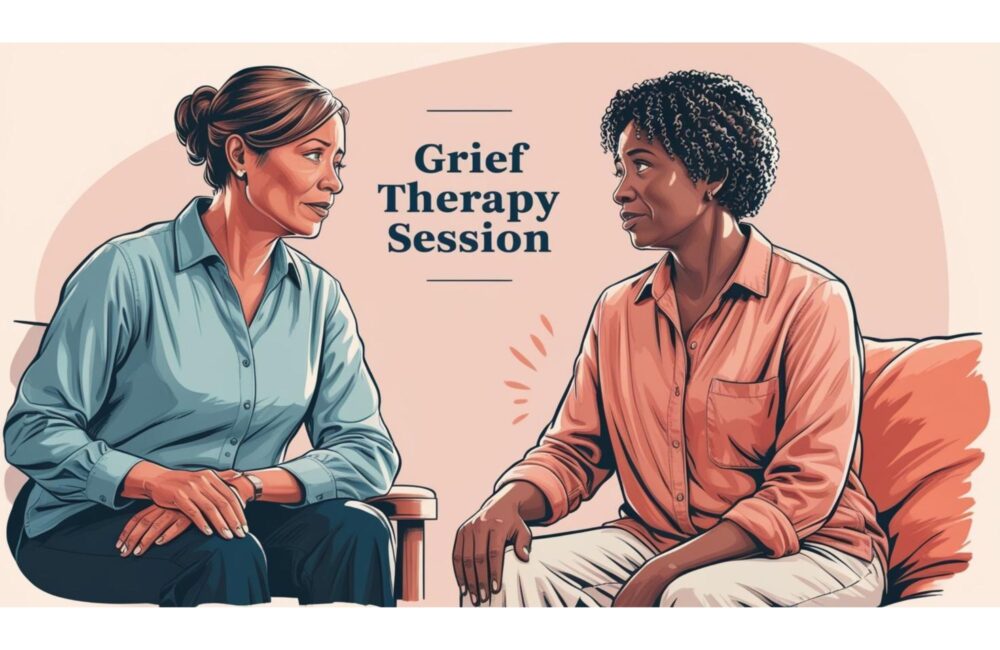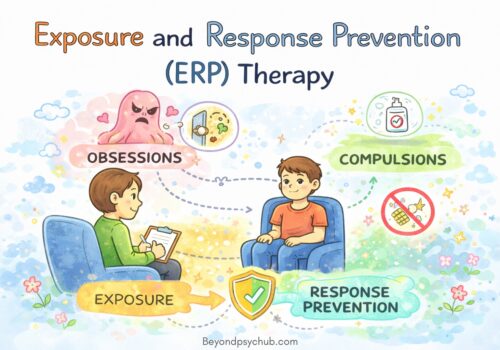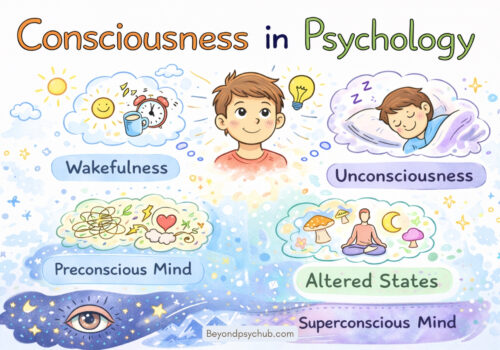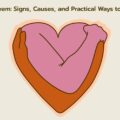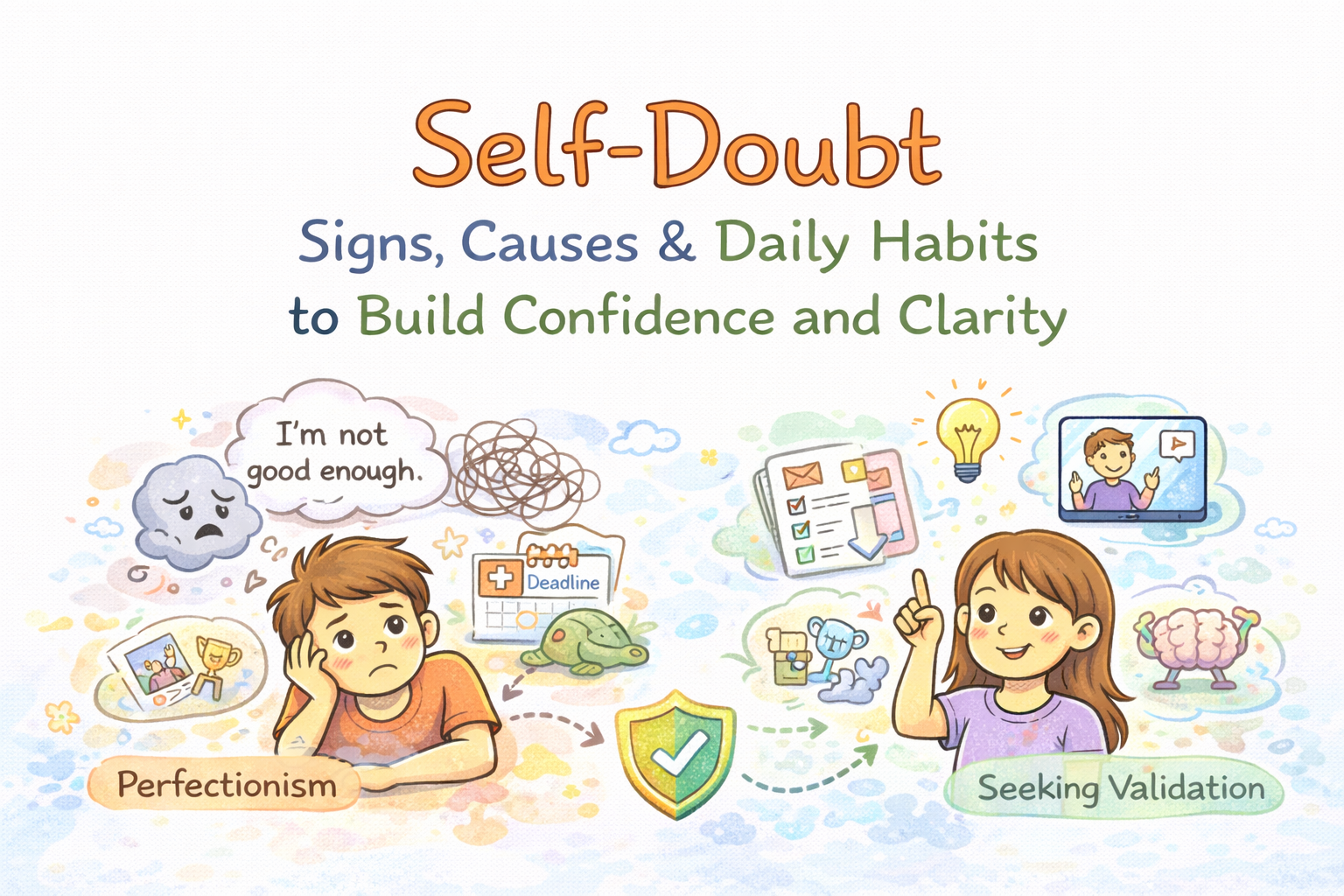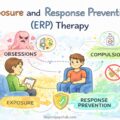According to the US Census Bureau, approximately 2.6 million deaths occurs annually in the US, with an average of 5 grievers per death. Globally according to grief statistics, an estimated 95 people die every day, and 15 to 20% are associated with them experiencing complicated grief which can persist indefinitely without proper intervention.
Grief is a fundamental human experience—Every human goes through the pain of losing a loved ones at some point in their life. And no human being can quantify whose grief is more profound. Suffering happens to everyone, and so does pain, whether less or more.
The duration of grief, rather than its intensity, determines whether it becomes a long-term emotional burden. Unfortunately, grief education is not widely taught, leaving many struggling with the emotional impact of loss. Without proper coping strategies, grief can be emotionally paralyzing, preventing individuals from moving forward.
While the loss of a loved one is a primary cause of grief, many other life events can trigger profound sadness, includin.
- Losing a job
- Failing in a career or education
- Death of a pet
- Financial loss or bankruptcy
- Chronic illness or injury
- Losing a body part due to medical conditions
- Relationship crisis
- Even losing sentimental items like a pen or book
Each form of grief is valid, and addressing it effectively is essential to emotional healing.
What is Grief Therapy?
Grief therapy is a specialized form of counseling designed to help individuals cope with the emotional pain of loss. It provides structured guidance, coping mechanisms, and therapeutic techniques to support healing, ensuring that grief does not become overwhelming or prolonged
Grief varies from person to person, influenced by individual personality traits. When we talk about normal or uncomplicated grief, it means that a person is experiencing emotional responses such as sadness, sorrow, anxiety, guilt, or anger that gradually diminishes over time rather than persisting for months or years.
On the other hand, according to American Psychological Association, severe or complicated grief extends beyond six months to two years, sometimes leading to debilitating emotional distress or even suicidal thoughts.
Unlike normal grief, prolonged grief requires therapeutic intervention. A professional grief therapist provides essential strategies to help individuals rebuild emotional strength, preventing grief from consuming their well-being.

Here are the 9 effective grief therapies capable of helping every suffering person, holding their hands, and guiding them out of this ailment.
Grief Therapy Techniques for Coping Grief
Before selecting a coping technique, the first crucial steps is to recognize and assess your feelings and emotions. Grief feeling and emotions manifests differently for each individual. According to Stroebe & Schut, a person may encounter various emotional responses during the grieving process
- Depression
- Guilt
- anger
- Anxiety
- Hostility
- Despair
- Hopelessness
- Feelings of isolation etc
You have to figure out whether you are going through trauma or grief before taking your next step.
Acceptance and Commitment Therapy
ACT is Acceptance and commitment therapy is an approach therapists use to make the bereaved win over grief. The two therapies, Cognitive Behavioral Therapy, and Traditional Behavior Therapy play a part in it.
The primary aim is to make the sorrower accept all the negative emotions and the bad and annoying situations and try to develop healthy patterns thus a person can live a better life. It helps a person in enhancing their psychological flexibility and making them brave enough to understand and accept any kind of feeling like guilt or sorrow instead of ignoring or running from them.
This technique uses mindfulness to help people accept their loss, especially in complicated grief. According to studies, a bereaved can only fight with grief if he first accepts the loss. And ACT’s biggest and only focus is on this point. It uses several techniques like
- Make people accept negative emotions and feelings
- Try to keep a distance from these emotions and thoughts to understand the situation properly
- Try to focus on the present instead of past memories or fear of future
- Understand your values
- Understand the situation and overcome difficulties to become a better version of yourself.
Cognitive Behavioral Therapy (CBT)
Do you remember the rule? To accept something, you have to identify it. So, the same rule comes here. To accept the negative patterns, first, you must learn to identify them, which is done through CBT.
It empowers individuals to identify and address negative thoughts and beliefs that can trigger feelings of hopelessness and despair. To illustrate, a person may struggle with thoughts of responsibility and blame for losing a loved one, even when the reality is different. These negative thought patterns can intensify emotions of guilt and shame, hampering the grieving process. By incorporating CBT techniques, individuals can learn to recognize and challenge these negative thoughts and replace them with more balanced and constructive ones. This approach can help them reduce the intensity of grief and sadness, promoting a more positive outlook on life.
Some tools that therapist use while CBT are
- Cognitive Reframing or Restructuring
- Make yourself aware of the negative thought patterns and what causes distortions, and then make changes according to them.
- Targeting Behaviors
- Find and address harmful or unhelpful habits or behaviors and replace them with positive ones.
- Developing a New Narrative
Give a new narrative to your way of thinking, and make yourself aware that you are not wrong; instead, show you a path that helps you change your mindset.
Traumatic Grief Therapy
This grief comes in combination with trauma. When a person experiences both at the same time, not only the pain increases, but it is also difficult to cope with it. That’s why a therapist has to employ traumatic grief therapy. However, most studies join trauma and grief in case of sudden and unexpected death. But it occurs in any situation. The treatments include in this therapy are
- Cognitive behavioral therapy (CBT)
- Cognitive processing therapy (CPT)
- Narrative exposure therapy
- Brief eclectic psychotherapy
- Prolonged exposure therapy
- Eye movement desensitization and reprocessing therapy (EMDR)
Complicated Grief Therapy
As I already mentioned, complicated grief differs from normal and may be prolonged and disabling. It prevents individuals from moving forward, coping with grief, and resuming their daily activities. Thus, a form of psychotherapy that is specially designed for people who are struggling with persistent and intense symptoms of grief is CGT (Complicated grief therapy).
It is focused and structured and helps the suffering person to find meaning in the loss and try to struggle against it. Mostly in individual or group sessions, the therapists use various techniques or combinations of them, like cognitive-behavioral therapy, mindfulness, and exposure therapy.
Group Therapy
Have you seen a small group of people who are sharing their stories with each other, especially losing something and coping with getting out of their feelings of loss? This is called group therapy. Sitting and meeting with such people who have gone through the same sense of grief as you and successfully recovering from it helps in your healing journey. Such support groups are not only helpful but also safe and full of a loving environment. Your stories and experiences are confidential there, no one can breach the safety, and also you get immense support.

New Routine
Creating a new routine is another great way to indulge yourself in activities that don’t spare your mind to think about grieving incidents. First, making a routine, implementing it correctly, and checking that you follow it entirely will not allow you to think about anything else. People can also start different hobbies that not only divert their thoughts but also help them do something productive.
Bibliotherapy
Bibliotherapy is a grief therapy technique that utilizes reading—especially personal narratives and literature—as a means to process emotions, find comfort, and gain psychological strength.
Although not widely recognized in urban area, the Bibliotherapy technique is highly values and recognized among rural communities, where shared experiences often serve as a crucial source of healing
One profound abilities of humans is empathy—the capacity to connect with the emotions and experiences of others.
That’s why people frequently share their life experiences through writing stories, books, articles, and even videos. allowing others to learn, reflect and draw inspiration from them, .
In the context of grief, bibliotherapy provides a powerful tool for recovery. Reading stories of individuals who have faced and conquered deep sorrow can be motivating and uplifting, offering emotional strength, positivity, hope, and a sense of support.
Art is Helpful
Art is something that helps many people; though people think that writing is the best way to express your feelings and make other people read your emotions and feelings and understand them, art has a more profound effect.
Drawing, painting, coloring, and sculpturing help people cope with grief, especially children and adults. Or anything that a person likes can do in the me-time. It really helps people to set back their grief thoughts.
Ritual Creation
Remembering things is also helpful. Coping with grief doesn’t mean you say permanent bye to your thoughts or the incident that happened in your past like the death of some loved one. But creating a ritual technique helps you channel this sorrow in some dedicated activity. Thus, you can remember and reflect upon the incident at a particular time instead of thinking and feeling sad throughout the day. There are various ways to do it, like visiting graves, praying for them, sitting in tranquility to think about it, going for a walk, etc.
Don’t think that only one technique is helpful enough to cope with the grief. As grief occurs in waves, as you smile in one moment and feel sad for some sad thought in the other, you have to use different techniques to defeat it. So, all these techniques are best to utilize, and your grief therapist will use them according to your needs and their effectiveness.
Conclusion
Experiencing grief is a natural part of life, and everyone in their life goes into this phase; The key is not just enduring it but understanding and overcoming it. While individuals can often navigate simple grief on their own, complicated grief requires professional support. A skilled therapist, using effective grief therapy techniques, can help guide individuals out of their emotional distress, allowing them to heal and reclaim their lives.


